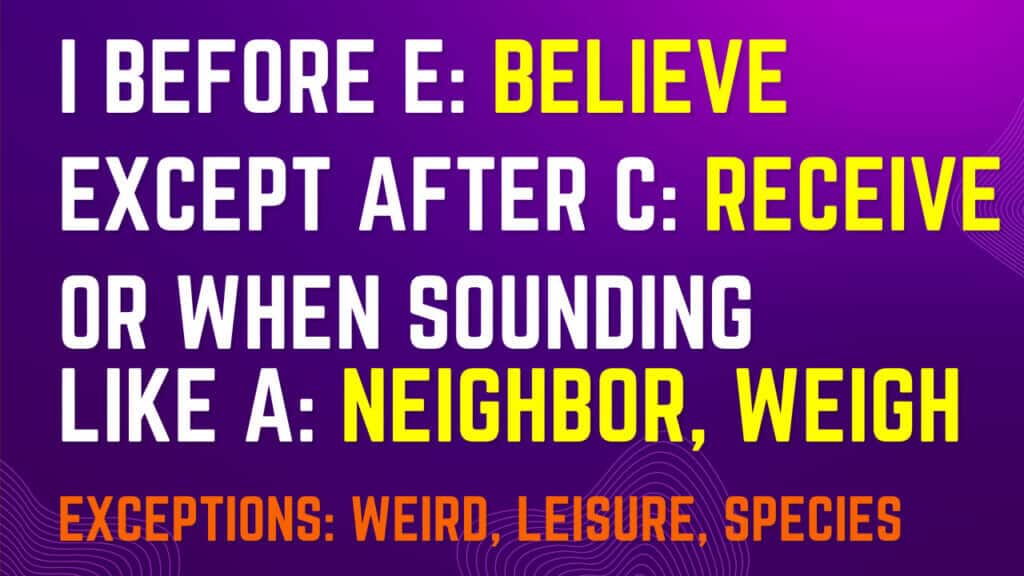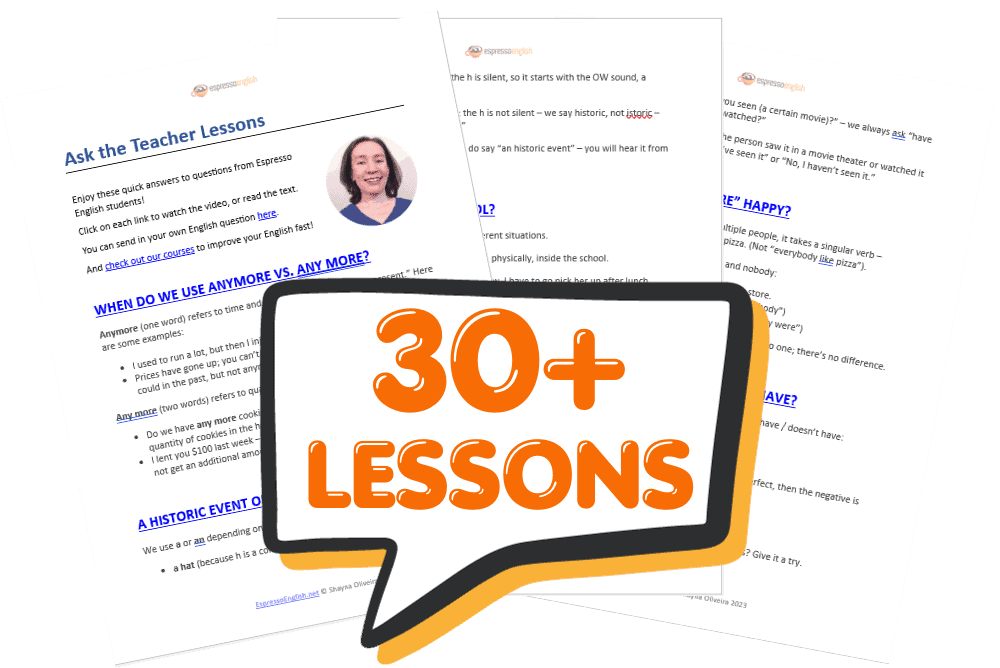
Download 30 Ask the Teacher lessons
Today’s question is, “Teacher, can you explain the ‘i before e except after c’ rule?”
There’s a rhyme that English speakers often use to remember whether to spell words with IE or EI, and it goes:
“I before E except after C, or when sounded as A as in neighbor and weigh.”
Let’s look at the words that follow this rule… and the exceptions to it!
“I” before “E”
These words follow the “i” before “e” rule. In all of them, IE is pronounced like EE:
- achieve
- belief
- cashier
- chief
- field
- niece
- piece
- shield
- thief
- yield
But we do have some exceptions:
- weird
- seize
- leisure
- either/neither
- caffeine
- protein
Except after “C”
These words show that when after “c,” it is “e” before “i”
- ceiling
- conceit
- deceit
- perceive
- receipt
But wait! There are exceptions:
- the word species (referring to a type of animal)
- the word policies (plural of “policy”)
- A few more common words that end in -cy and become -cies in the plural:
- pharmacies
- deficiencies
- vacancies

Or when sounded as “A”
When the vowel sounds like “A” as in “day,” then it is EI:
- neighbor
- weigh/weight
- beige
- vein
IE and EI can have many other sounds as well:
This is where the rule starts to fall apart, and you just need to remember the spelling of each word individually:
- height (rhymes with “might”)
- lie (rhymes with “why”)
- friend (rhymes with “end”)
- foreign (“eign” sounds like “in”)
- efficient (rhymes with “mint”)
- counterfeit / forfeit (last syllable sounds like “fit”)
- glacier (last syllable rhymes with “her”)
- science (here the “i” and the “e” are in separate syllables)
The English language is complicated – there are rules, exceptions, and exceptions to the exceptions!
I’m here to help make it clear to you, so you can speak English confidently. Come check out my English courses to take your English fluency to the next level.









